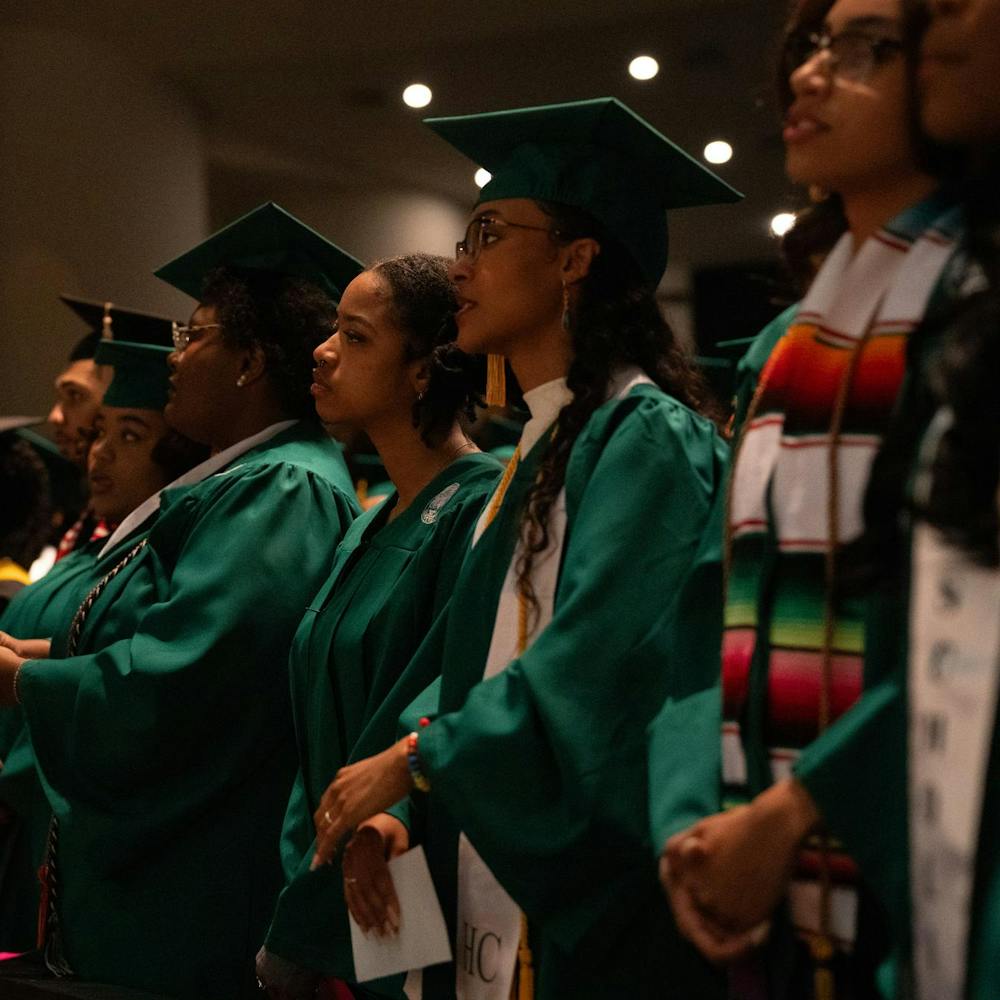A discordant note has interrupted the harmony within MSU’s College of Music in recent weeks. On Feb. 6, the College of Music submitted a moratorium — a freeze on admissions — that could eventually lead to the disbanding of the college’s music therapy program, said James Forger, dean of the College of Music.
The program was the first of its kind when it began in 1944. MSU’s music therapy works with special needs individuals and children in the community to express themselves through music, said Virginia Anderson, a graduate student in the program who is currently working on her thesis.
“We’re advocating for those who don’t have a voice,” Anderson said. “We provide opportunities for community mental health to come to campus and do therapy and celebrate the ability that they have instead of focusing on the disability that they have.”
The freeze on admissions would take effect in summer 2009 and will affect undergraduate and graduate levels of the program. Forger said calls are being placed to notify students who had been planning on auditioning for the program.
The program currently has 34 students — 21 undergraduate and 13 graduate, he said.
“Basically, they’re acting in good faith and not wanting to mislead students, but they’re assuming that their request (for the moratorium) will be honored,” said Linda Stanford, associate provost for academic services.
The moratorium must make its way through the governance system and then the provost to be approved, Stanford said.
Provost Kim Wilcox said the moratorium is part of a wide variety of adjustments that will have to be made throughout the university to adjust to the current financial climate.
As of last week, Wilcox said the music therapy moratorium was the only one his office had received, but he wouldn’t be surprised to receive others.
Financial problems
The College of Music needs to cut around $800,000 from its approximately $8 million budget. The elimination of the music therapy program will save about $220,000, Forger said.
Other reasons for the freeze include declining enrollment and the future retirement of two of the program’s professors, Frederick Tims and Roger Smeltekop.
These reasons have failed to convince students like Anderson and Eve Andrus, a music therapy graduate student.
“It would be a huge loss to the community,” Andrus said. “Students from all over the world come here to study music therapy. The job market is increasing. It’s not a decreasing occupation.”
Students who currently are enrolled in the program will be allowed to finish their degrees, Forger said.
“We will take all measures so they can complete their degrees unimpeded and unaffected, but no new students will be admitted,” he said.
Andrus said she and others in the program felt blindsided by the decision.
“None of us had any clue that this was going to happen,” she said. “You can’t prepare speeches and prove that this is something to keep going if you don’t know.”
Although it is possible for moratorium to be reversed, Wilcox said in this case it is unlikely.
“The moratorium could be lifted, but I would not be optimistic in this situation, given the funding reality over the next two to three years,” he said.
Support student media!
Please consider donating to The State News and help fund the future of journalism.
Call to action
Students within the program and campuswide have been distributing calls for action and sending letters to university officials in an attempt to save the program.
“The students currently in the program have been very heartfelt, very strong and have represented democracy at its best in terms of engaging the deans of the college of music,” Forger said.
At a meeting Monday night, supporters of the program expressed ideas to save it, including asking for donations from alumni and fundraising.
The cost to endow one faculty position is $1.5 million, Forger said.
Mark Sullivan, chair of composition in the College of Music, said the cuts weren’t about the quality of the program but if something wasn’t cut the entire college would be at risk.
Another meeting, this time with the provost, is scheduled for 6 p.m. today in 103 Music Practice Bldg.
Discussion
Share and discuss “Music program in discord” on social media.






